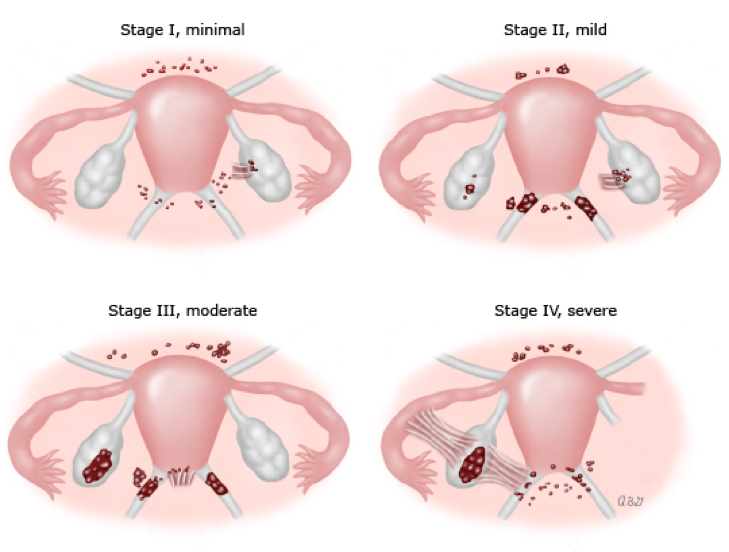Patient Information
Answering Your Questions
FAQ
Is endometriosis confined only to a specific age?
Endometriosis is commonly happening in women during their productive age group (from puberty up to menopause) but it can also affect young girls during their premenarcheal age and postmenopausal age group.
What happens if my diagnosed endometriosis is untreated?
- 17-29% of endometriosis lesions resolve spontaneously
- 24-64% progress to more severe disease
- 9-59% remain stable over 12 months
What’s wrong with having ectopic endometrial glands elsewhere outside the uterus?
Ectopic endometrial glands outside the uterus responds to the monthly hormonal changes, same as the native endometrial glands inside the uterus with one main difference, the intrauterine endometrial glands sheds off every month and comes off with the period blood, however, the ectopic endometrial glands does not shed off, in fact with repetitive, monthly hormonal manipulation, they transformed into localised inflammatory spots that can generate different types of pain and also can affect fertility.
Can my doctor make a diagnosis of endometriosis during my first visit with him?
Unfortunately, the definite diagnosis of endometriosis is usually made during laparoscopy but there are some findings during physical examination that can raise high index of suspicion for an underlying endometriosis such as feeling of a tender point or nodule behind the uterus, feeling of a tender cystic ovary, feeling of a tender immobile uterus, and rarely endometriosis lesions can be visualised on the cervix or the vagina.
What about surgical staging of endometriosis?
Endometriosis can be surgically staged as (see figure 5)
Stage 1: minimal disease is characterised by isolated implants and no significant adhesions.
Stage 2: mild disease, superficial implants that are less than 5cm in total aggregates and scattered over the peritoneum or the ovary.
Stage 3: moderate disease, multiple implants, both superficial and deep +/- presence of adhesions around the tubes or ovaries
Stage 4: severe disease, multiple superficial and deep implants including large ovarian endometrioma, dense bowel/bladder/ureteric adhesions.
Figure 5: Staging of endometriosis
Is it true that pregnancy can cure or improve endometriosis disease?
Yes, during pregnancy and under the influence of pregnancy related hormones, the endometriosis lesions can go through a process called decidualisation which can make endometriosis lesions and the resultant symptoms often disappear or improve.
Is there any link between endometriosis and cancer?
Yes, there was a big analytic study (meta-analysis) that compared the risk of ovarian cancer among 8000 women included in 14 different studies and has found that patients with ovarian endometriosis have 2-3 fold increased risk of ovarian cancer.
